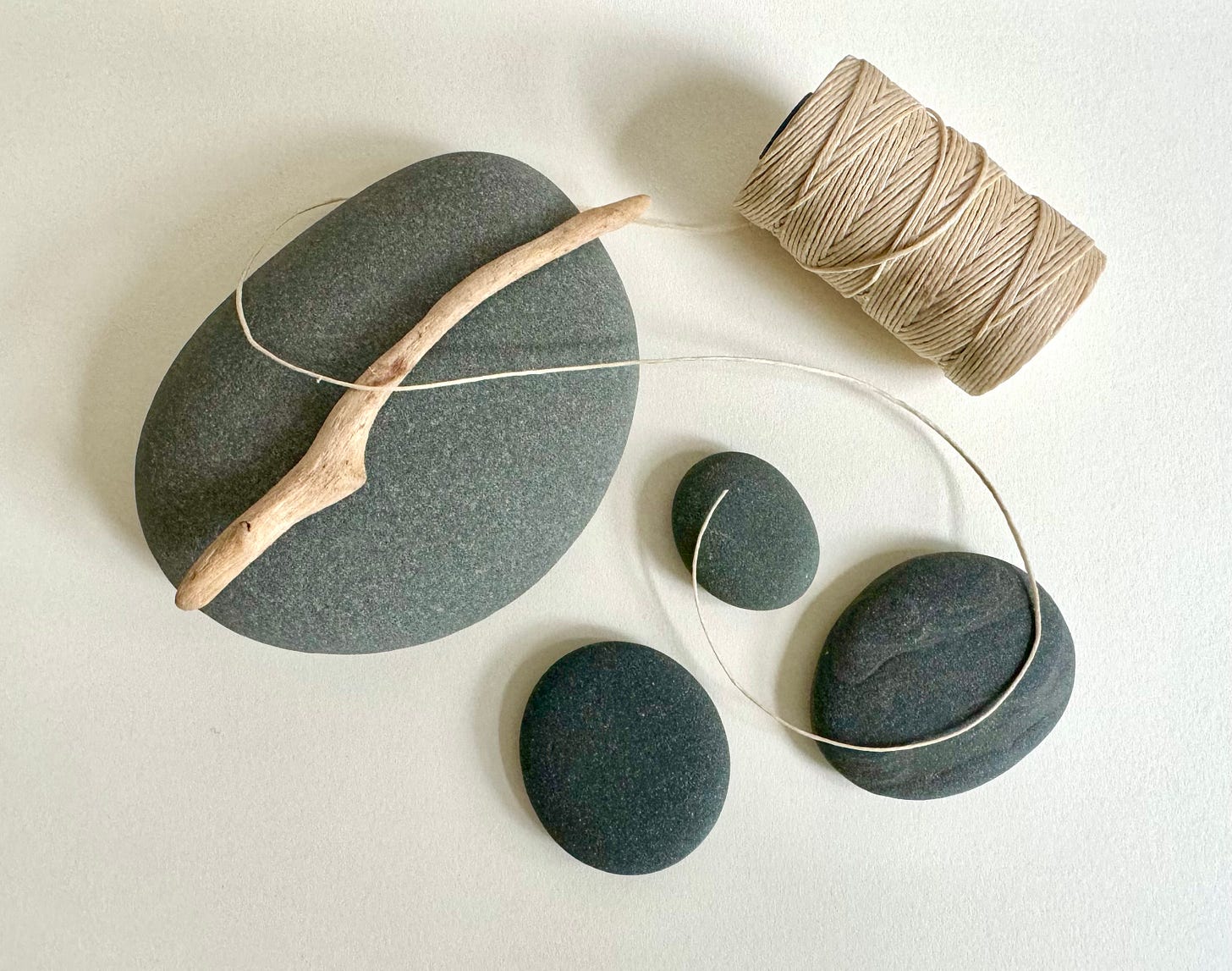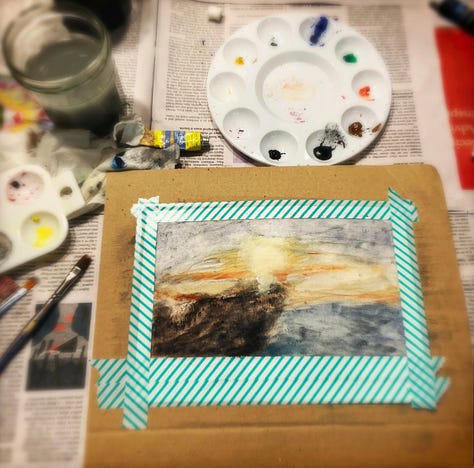Hi, my name is Oma, and I am a serial crafter.
For most of my adolescent and adult life, roughly once a year I’ve picked up a new craft and gone deep into it for a relatively short period of time. In high school, there were cross-stitch holiday gifts for family. My freshman year in college, I decided to teach myself how to knit — I challenge you to find a better stress-relieving hobby, something both mindful and mindless.1 Instead of a basic scarf, however, I picked a complicated cropped pullover with a double-cable pattern and set about making the one and only thing I’ve ever knit (which I think I still have in my closet).
There was a time in my early thirties when I gave everyone I knew cocktail squares or hand towels embroidered with a monogram, or onesies stitched with ladybugs, for Christmas or Hanukkah or baby showers.
As a sometimes-recovering perfectionist, I can’t completely evict my aversion to failure from these endeavors, but one reason I regularly dip into a new craft, is that I get something useful and energizing out of that stage where I’m not good at doing the thing. It’s chewy. It pushes back on the ego and the particular kind of fear-inertia that we perfectionists can be prone to. And for me, the benefits show up even if I’m not interested in sticking with the thing to any real level of mastery. If I can hang out on the uncomfortable first rungs of the ladder, there’s this interesting play between ego-killing and ego-stroking that feels very alive.

This process reminds me of Zen Mind, Beginner’s Mind by Shunryu Suzuki, a collection of essays on Buddhism, meditation, and maintaining the open mind of a beginner. These lines stand out from the book’s prologue:
“In the beginner’s mind there are many possibilities, but in the expert’s there are few. … In the beginner’s mind there is no thought, ‘I have attained something.’ All self-centered thoughts limit our vast mind. When we have no thought of achievement, no thought of self, we are true beginners. Then we can really learn something.”
The prologue continues: “This is also the real secret of the arts: always be a beginner. Be very careful about this point.” Suzuki is talking about the practice of zen, but the sentiment applies to all pursuits, and most especially creative ones. The idea isn’t that you shouldn’t develop skills and work at honing a craft, but rather that you should stay connected to the kind of wonder and sense of discovery that comes with just starting out. That you shouldn’t close your mind to seeing the new, even in an “old” activity.
It’s one of the things I love in particular about writing or pottery or any of the fumbling attempts I make with watercolors or lino carving or next year’s craft of the moment — you are never done learning, discovering, improving.



It’s about flowing in the verb of it all, rather than sitting in the noun. It’s not about the static achievement, but rather the movement of doing.
And it helps me transform a trait that can be stifling — perfectionism — into a looser, more exploratory process that can bring real joy, even when, especially when, there’s no “X” marking a spot called “perfect.”
I’m curious, does this whole idea of the forever-beginner resonate with you, too?
Wheel-thrown pottery has a similar magical balance, between control and the surrender of it. More on that another time.





The whole idea of the forever beginner is freeing. Mastery and winning are not always the end game, nor should they be. I love watching Olympic swimming but I’m not ruining my time at the pool by trying to get really good at breast stroke. That’s not the point of taking a simple swim and finding real pleasure in it.
Oh I adore this reflection about art as a way to tame perfectionism. That's one of the reasons why I adore things like pottery! Perfection doesn't exist — just like in life. What a great reminder!